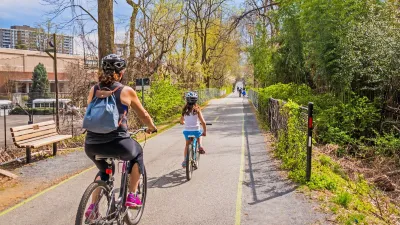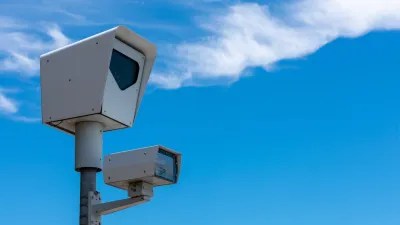An article on Washington Post's Wonkblog says what some bikers were thinking: sometimes it feels safer to break the law.
Emily Badger begins an article about bikers who flout traffic laws by admitting that she occasionally breaks the law while on her bike—not because of some reckless impulse but because sometimes on a bike safer conditions are achieved by bending the rules.
The problem, according to the article is that "we don't really understand — and we definitely don't talk about — the behavioral psychology of cycling all that well." It's much easier, according to Badger, for drivers to "picture all scofflaws as that caricature of a New York City bike messenger, a professional risk-taker who laughs at traffic laws and the suckers who obey them."
These questions lead Badger to examine the work of Wesley Marshall, an assistant professor of civil engineering at the University of Colorado who is also co-director of the Active Communities Transportation Research Group, and a team of researchers examining "scofflaw behavior, why people say they do it (drivers and cyclists alike), and when they don't."
Why might this work be valuable? "More data on the scofflaws inside all of us could potentially help create safer streets, even…more productive public debate about how cars and cyclists coexist," writes Badger.
FULL STORY: Let’s talk seriously about why cyclists break traffic laws

Alabama: Trump Terminates Settlements for Black Communities Harmed By Raw Sewage
Trump deemed the landmark civil rights agreement “illegal DEI and environmental justice policy.”

Study: Maui’s Plan to Convert Vacation Rentals to Long-Term Housing Could Cause Nearly $1 Billion Economic Loss
The plan would reduce visitor accommodation by 25% resulting in 1,900 jobs lost.

Planetizen Federal Action Tracker
A weekly monitor of how Trump’s orders and actions are impacting planners and planning in America.

Waymo Gets Permission to Map SF’s Market Street
If allowed to operate on the traffic-restricted street, Waymo’s autonomous taxis would have a leg up over ride-hailing competitors — and counter the city’s efforts to grow bike and pedestrian on the thoroughfare.

Parklet Symposium Highlights the Success of Shared Spaces
Parklets got a boost during the Covid-19 pandemic, when the concept was translated to outdoor dining programs that offered restaurants a lifeline during the shutdown.

Federal Homelessness Agency Places Entire Staff on Leave
The U.S. Interagency Council on Homelessness is the only federal agency dedicated to preventing and ending homelessness.
Urban Design for Planners 1: Software Tools
This six-course series explores essential urban design concepts using open source software and equips planners with the tools they need to participate fully in the urban design process.
Planning for Universal Design
Learn the tools for implementing Universal Design in planning regulations.
Caltrans
Smith Gee Studio
Institute for Housing and Urban Development Studies (IHS)
City of Grandview
Harvard GSD Executive Education
Toledo-Lucas County Plan Commissions
Salt Lake City
NYU Wagner Graduate School of Public Service





























